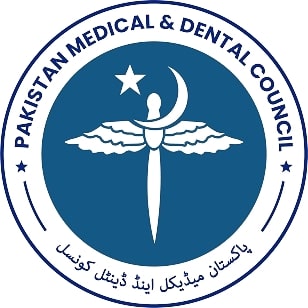Knowledge, attitudes, and practices of University Students of Lahore regarding Coronavirus vaccines
DOI:
https://doi.org/10.59058/jaimc.v21i3.135Keywords:
COVID-19 vaccine, Dose, attitudes, practices, knowledegAbstract
Background
A new coronavirus SARS -COV-2 is responsible for the disease termed COVID-19. On 31st December, 2019, several cases of viral Pneumonia were reported to WHO from, Wuhan, China. In Pakistan first case was reported on 20th February, 2020. It was declared as Pandemic by WHO on 11th March, 2020. The loss of human life throughout the world along with economic and social interruption was devastating.
Objective:
To assess knowledge, attitude and practices of university students of Lahore regarding coronavirus vaccines.
Methods: An online cross-sectional study was conducted among 171 university students on a self-administered structured pre-tested questionnaire from 1st July 2021 to 15 August 2021 after approval from Institutional Review Board. A written consent form was filled by each student online. The questionnaire comprised of four sections. First section dealt with sociodemographic profile and second, third and fourth section had questions related to knowledge, attitude and practices. The data was analyzed using SPSS version 27. The knowledge, attitude and practices were graded as good (>70% correct answers), satisfactory (50-70%) and poor (<50%). Chi- square tests were applied to find out any statistical significance between the sociodemographic parameters and knowledge, attitude and practice regarding COVID-19 vaccine. P-value of ≤ 0.05 is considered to be statistically significant.
Results: The mean age of the respondents was 21.652 ± 2.14 years. Good knowledge, attitude and practices were 36.8%, 88.3% and 52.3% respectively. Willingness towards vaccination was shown by 89.5% students. Only 48% students had received both doses of the vaccine, while only 6.4% knew about all the vaccines that were available in Pakistan. Age was statistically associated with knowledge (p=0.03) and gender with attitude (p=0.048).
Conclusion: Though students had poor knowledge but their attitude and practices were much better.
Downloads
Published
How to Cite
Issue
Section
License
Copyright (c) 2023 Mahnoor Alam, Taha Alam, Seema Hasnain, Abdullah Safdar, Hareem Sajid

This work is licensed under a Creative Commons Attribution 4.0 International License.
The articles published in this journal come under creative commons licence Attribution 4.0 International (CC BY 4.0) which allows to copy and redistribute the material in any medium or format Adapt — remix, transform, and build upon the material for any purpose, even commercially under following terms.
-
Attribution — You must give appropriate credit, provide a link to the license, and indicate if changes were made. You may do so in any reasonable manner, but not in any way that suggests the licensor endorses you or your use.
- No additional restrictions — You may not apply legal terms or technological measures that legally restrict others from doing anything the license permits.
The editorial board of the Journal strives hard for the authenticity and accuracy of the material published in the Journal. However, findings and statements are views of the authors and do not necessarily represent views of the Editorial Board. Many software like (Google Maps, Google Earth, Biorender (free version)) restricts the free distribution of materials prepared using these softwares. Therefore, authors are strongly advised to check the license/copyright information of the software used to prepare maps/images. In case of publication of copyright material, the correction will be published in one of the subsequent issues of the Journal, and the authors will bear the printing cost.










